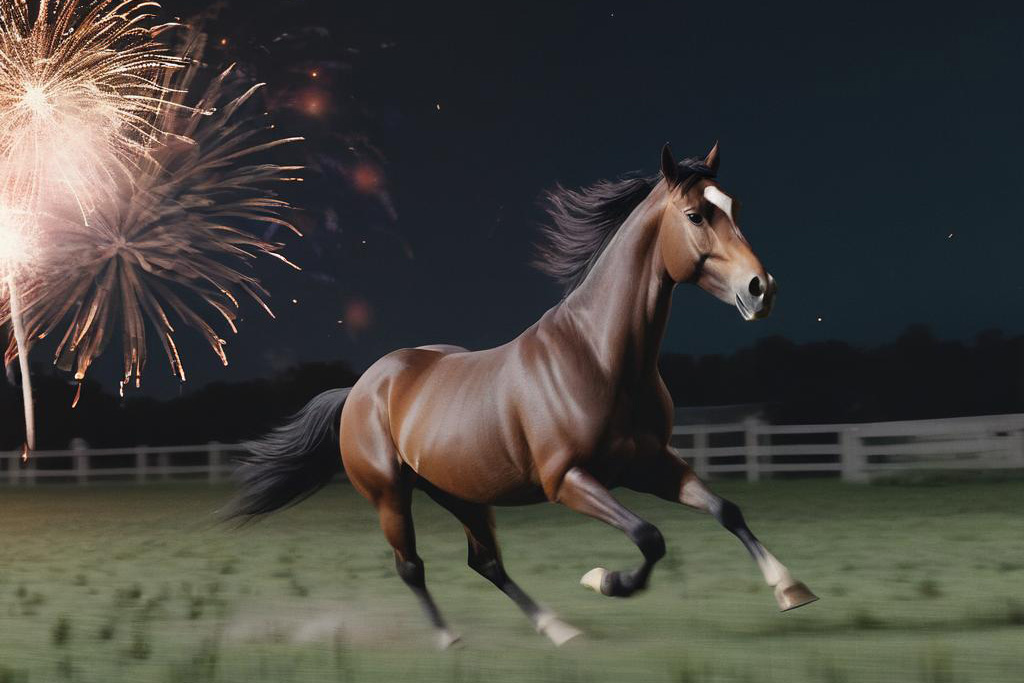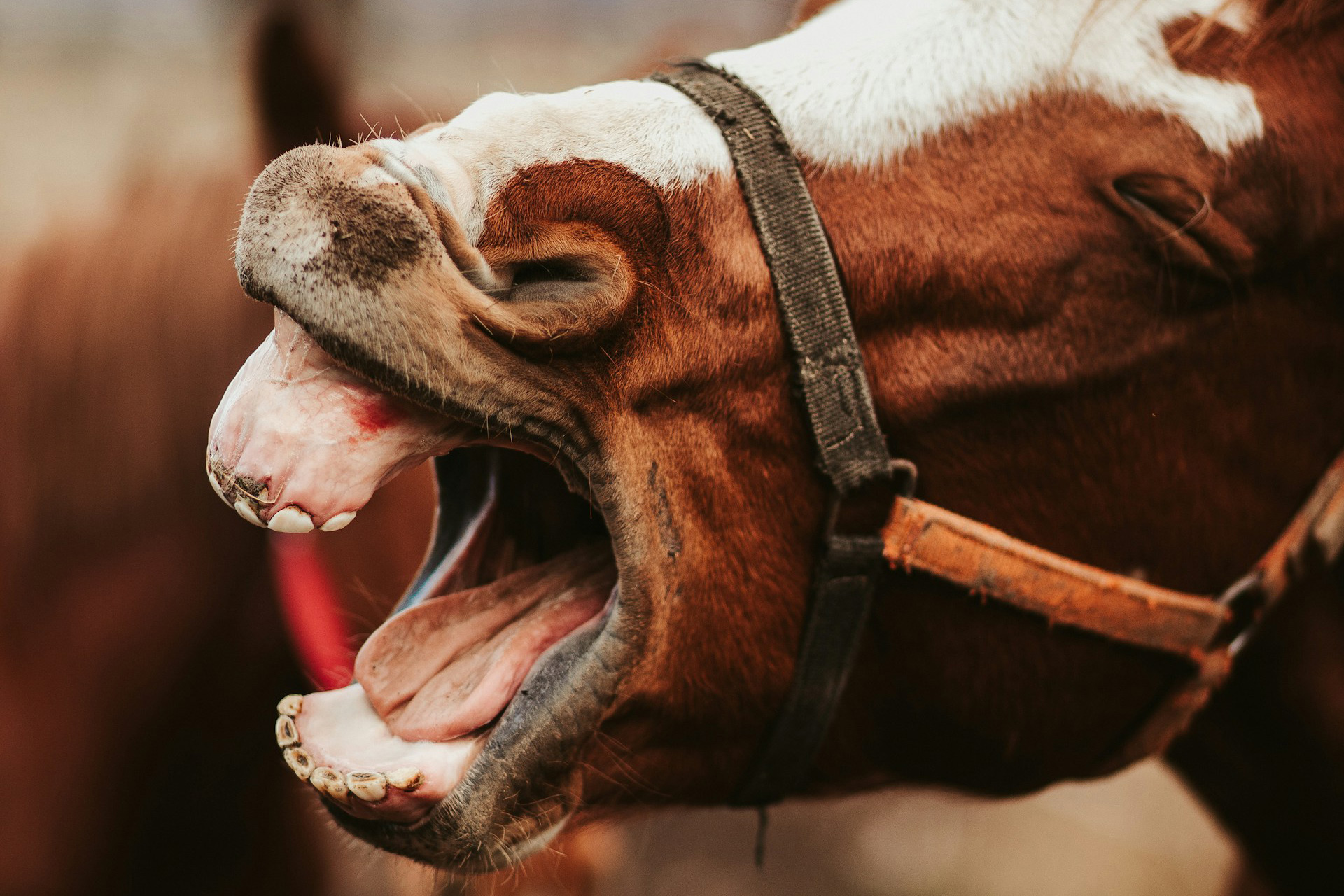Fourth of July celebrations can be fun for people, but they can be terrifying for some your pets and livestock, especially those who are skittish and noise-averse. Fireworks set off nearby can easily unnerve these sensitive animals.
For horses fearful of fireworks, it may be best to relocate them to a quieter ranch during the upcoming holiday. If you’re concerned about your horse’s reaction, take precautions to ensure everyone’s safety. Place your horse in a familiar and secure location, such as a stall or a small paddock.
A panicked horse escaping down roads or into the wilderness, especially at night, can lead to accidents or death. Remember to thoroughly inspect the fence line and latches for any potential escape routes. Consider placing a radio nearby and turning up the volume.
For extremely skittish horses, you may want to talk to your veterinarian about sedation as an option. Remember that the administration of these medications needs to be timed with the fireworks display, and you’ll need to monitor your horse closely while on medication.


